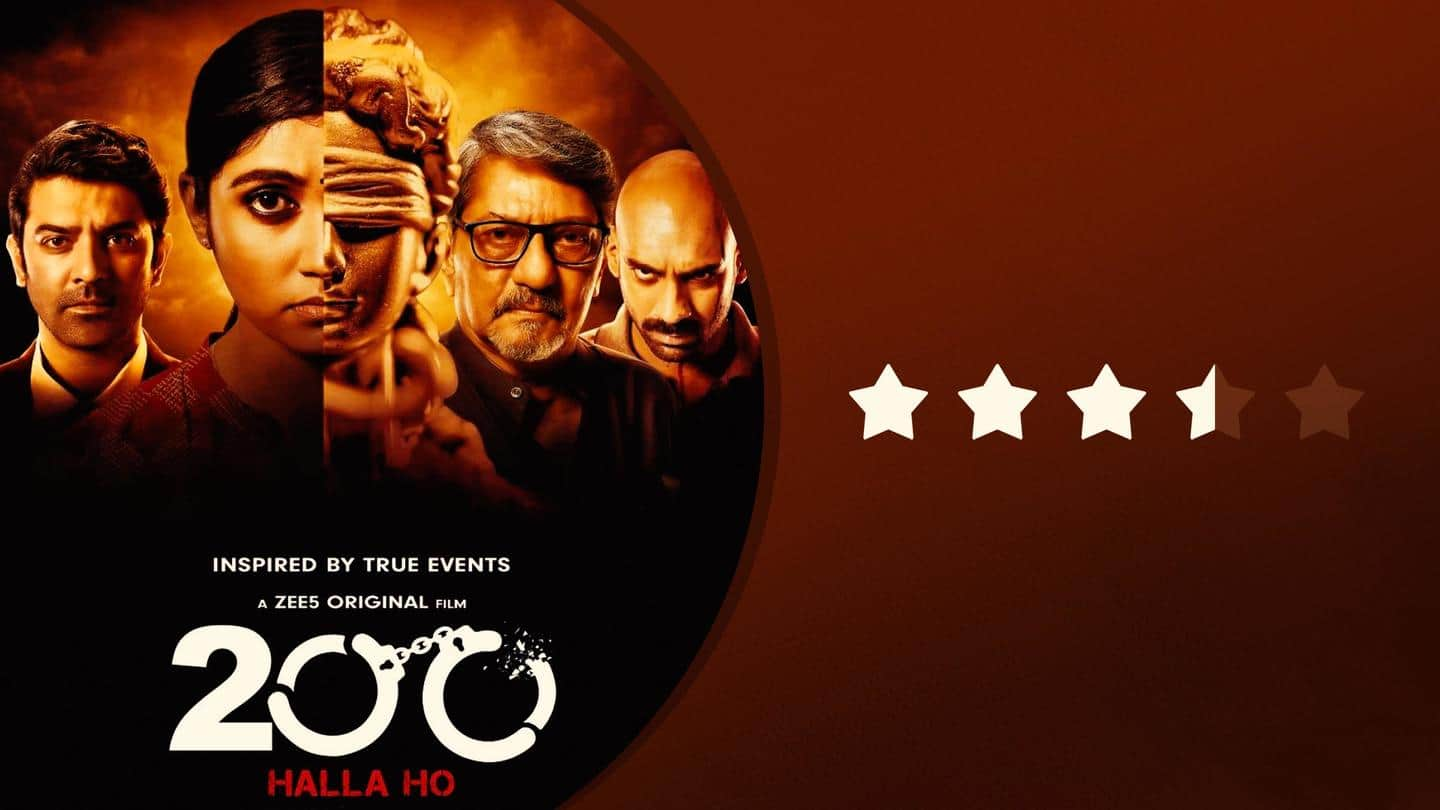
'200 Halla Ho' review: Important retelling of Dalit rebellion
What's the story
The strongest link to writer-director Sarthak Dasgupta's 200 Halla Ho is the real-life incident that inspired it.
In August 2004, around 200 Dalit women in Nagpur had lynched a gangster in a courtroom for reportedly raping and abusing several women of their colony for over a decade without receiving any punishment.
Taking this powerful incident, Dasgupta spells out an important movie.
Here's our review.
Key players
Upon five women's arrest, our main characters are set up
Keeping in with the real story, as collected from media reports, police arrest five women from the colony as suspects in the murder of gangster Balli Chaudhary (fictional name).
One of the Dalit women Asha (Rinku Rajguru), a well-meaning lawyer Umesh (Barun Sobti), and others defend the accused.
Separately, a retired judge (played by Amol Palekar) gets involved to gauge out the actual facts.
Intention
Caste, class, gender disparity is called out bravely
Here, the object of interest is to show whether the act of taking laws into our own hands is ever justifiable.
Can we judge all cases according to one rulebook, overlooking the intricacies behind each and every individual case?
Dasgupta and his co-writers Abhijeet Das, Soumyajit Roy, and Gaurav Sharma call a spade a spade by presenting caste and income disparity with courageous honesty.
Do you know?
The caste stamp affects all, in different ways
My favorite scene is Asha-Vithhal Daangle's (Palekar) confrontational scene, presenting two ends of being Dalit in India. While Asha stays back to fight for "her" people, Daangle is adamant about erasing caste from his identity. It shows how the caste stamp has differently affected them.
Characters
The antagonist is pitch black with no shades of grey
Palekar chooses a meaty role to mark his return to the screens.
Rajguru is powerful and Sobti makes good use of what little he gets to do.
Sahil Khattar as the antagonist is one-dimensionally a monster without much writing thought given to his character.
Makers don't put you in a dilemma as the bad guy is colored pitch black, with no grey to find.
Verdict
The end message triumphs some occasional glitches, movie gets 3.5/5
More attention to nuanced writing would have greatly affected the film.
There is a huge scope for movies on social evils to turn out preachy.
At one hour and 55-minutes, 200 Halla Ho occasionally falls prey to it during dull monologues.
But the message triumphs these technical glitches.
You can watch the film in Hindi, Marathi, Tamil, and Telugu on ZEE5.
Verdict: 3.5/5.